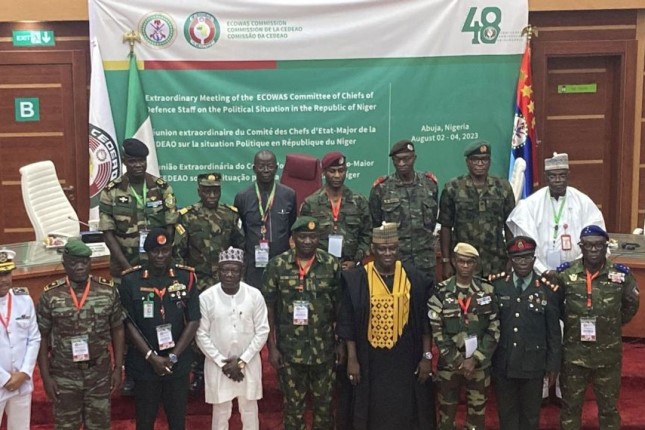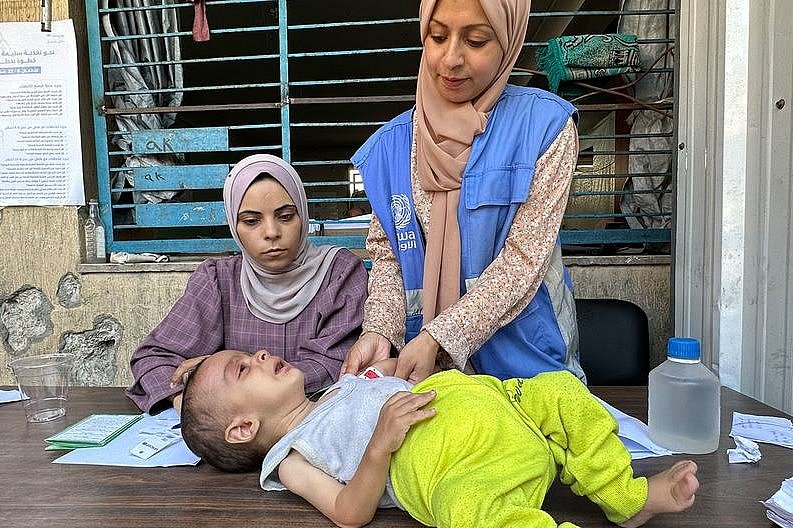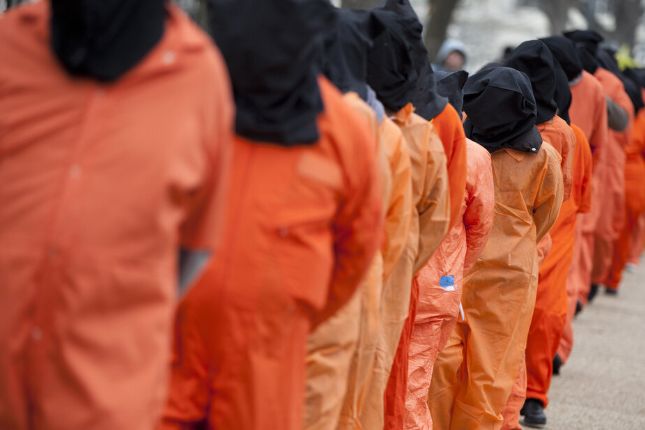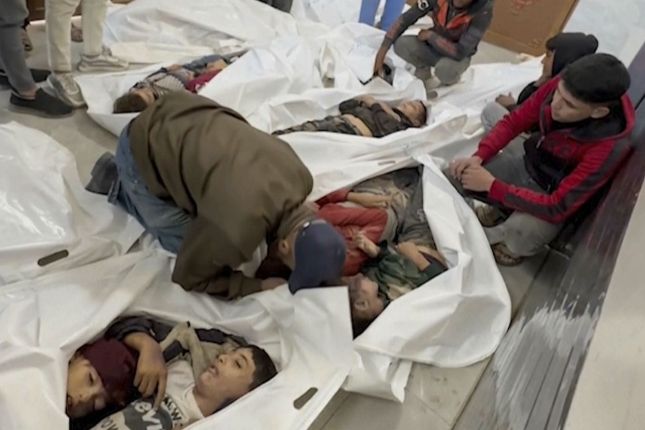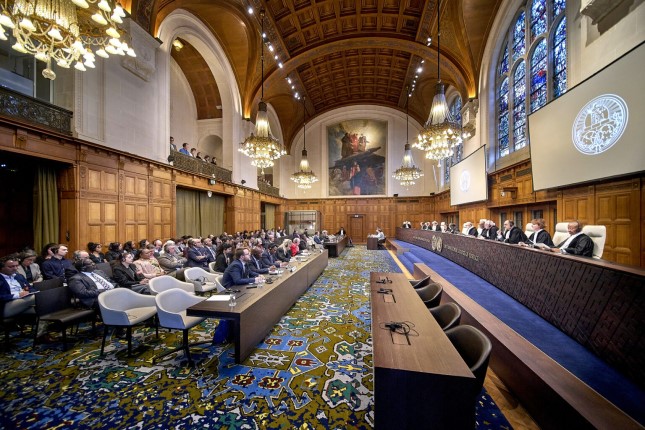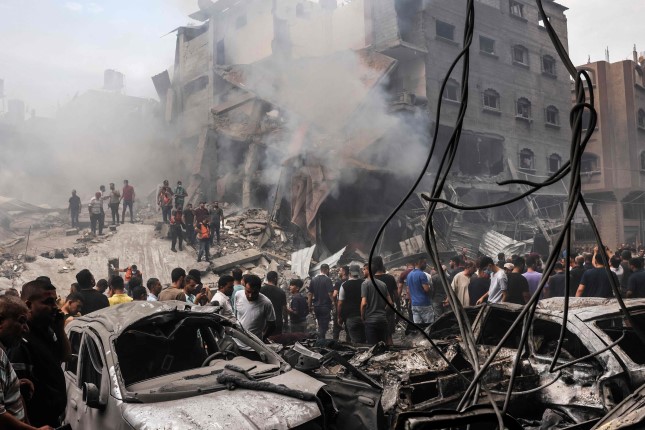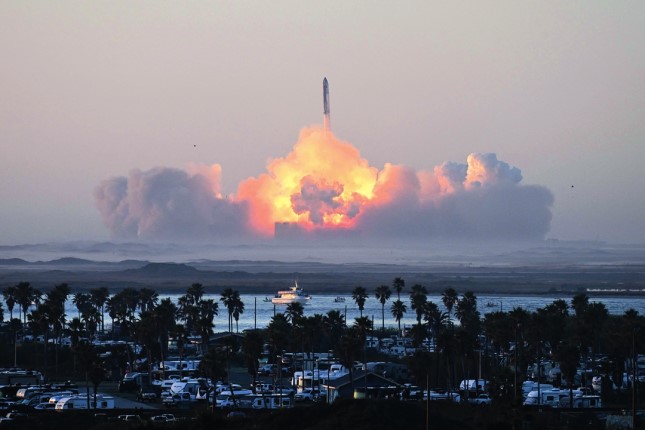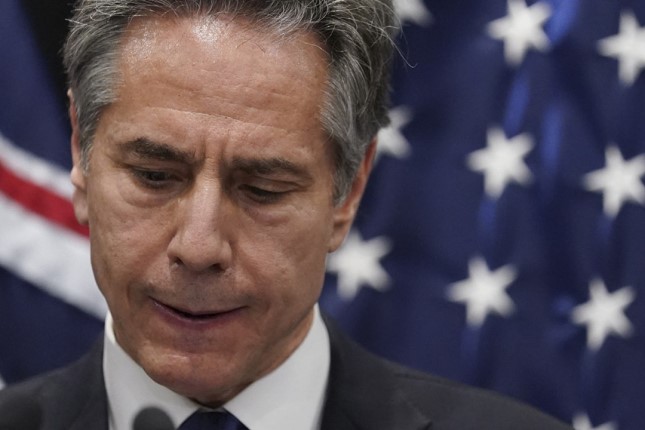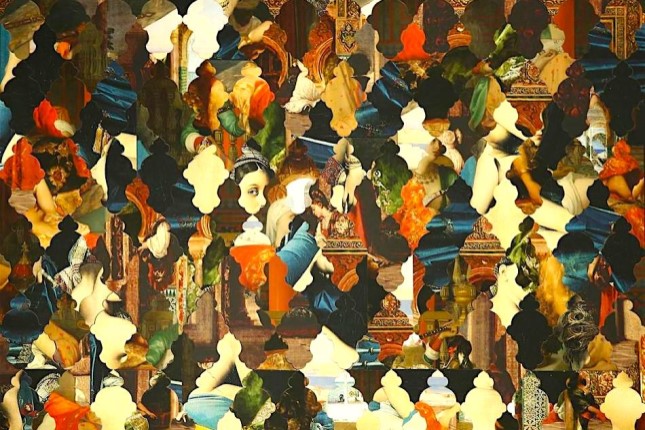They would be acting as a proxy force of the major imperialist powers, led by France and the US, with the aim of securing control of the impoverished but resource-rich country.
Bazoum, whose election in 2021 marked the first democratic transition of power in Niger since independence from France in 1960, was ousted by General Abdourahamane Tchiani, head of the presidential guard on July 26.
Bazoum, under house arrest in the presidential palace, used the Washington Post to call on the US and “entire international community” to help “restore... constitutional order.” He warned of the expansion of military rule in the Sahel region and Russia’s increasing influence if Niger were to follow its neighbours, Mali and Burkina Faso, in expelling French military forces and turning to Russia’s Wagner mercenary group for support.
This has left Niger and Chad as France’s last military bases in the region. The imperialist power’s share of Africa’s international trade has fallen from 10 percent to 5 percent over the last 20 years.
Tchiani and the presidential guard apparently acted on their own initiative in deposing Bazoum. Tchiani feared he was next in line for the sack after Bazoum dismissed the army chief of staff and forced other military chiefs into retirement. But they subsequently won the support of the military and have rallied popular support with appeals to popular anti-colonial opposition to France and its military presence.
The coup leaders have lined up with the military juntas in Mali and Burkina Faso, blaming Paris for the Sahel’s regional conflicts and escalating bloodshed. They have reportedly asked for help from Wagner, sending General Salifou Mody to Mali. Mody, speaking on television in Niger, warned against military intervention, promising Niger would do what it takes not to become “a new Libya.”
The struggle for power and control of vital resources between regional elites acting as proxies for the major powers threatens to destabilise not just Niger but the entire Sahel region: the wide belt from the Atlantic Ocean to the Red Sea that crosses the Sahara and includes Senegal, Mauritania, Mali, Burkina Faso, Niger, Nigeria, Chad, Sudan and Eritrea. Beset by myriad conflicts and social unrest amid poverty, drought and climate change, it has become the arena of a battle for influence and control involving France, the US, Germany and the European Union, the Gulf powers, Turkey, Russia and China—al seeking to profit from vast mineral resources critical for modern industry.
This “Scramble for the Sahel” leaves the region’s economic development—ranking among the lowest on the United Nations Human Development Index—subject to the rapacious demands of the transnational corporations, financial institutions and their local hirelings that whip up ethnic, tribal and religious conflicts to divide and rule.
Waging wars and interventions prosecuted under their professed objective of “fighting Islamist insurgents”, at a cost of hundreds of millions of dollars, the imperialist powers omit the fact that Islamist militants wreaking havoc across the Sahel are the product of Washington and its allies’ earlier use of them as a proxy army in the 2011 US/NATO war against Libya. Following the shattering of Libyan society and the assassination of the country’s leader Muammar Gaddafi, Islamist fighters scattered across northern Africa and throughout the Sahel.
These events, replicated dozens of times across Africa and the Middle East, demonstrate the fundamental correctness of Trotsky’s Theory of Permanent Revolution: that the former colonial peoples cannot achieve any of their most basic needs—freedom from imperialist oppression, land, democratic rights, jobs, and social equality—under the leadership any section of the national bourgeoisie.
In the imperialist epoch, basic democratic and national tasks in the oppressed nations associated in the seventeenth and eighteenth centuries with the rise of the bourgeoisie must be realized in the oppressed former colonial countries by the working-class taking power and as part of a struggle for socialism throughout Africa, only completed on the world arena.
Following Tchiani’s seizure of power, ECOWAS immediately imposed sanctions and a no-fly zone, ordered border closures on the landlocked country, and threatened an intervention if Bazoum were not reinstated by Sunday, although it said military action would be a “last resort.” Nigeria, upon which Niger depends for 70 percent of its power, cut off electricity supply to its neighbour.
France, the European Union, the US, the UN Security Council, with Russian and Chinese support, denounced the coup. International aid programmes to Niger, partly aimed at preventing African migrants using the country as a transit route to Europe, have been suspended. About 10 million of Niger’s 24 million population depend on humanitarian aid, while the government relies on foreign aid for 40 percent of its national budget.
While Russia has condemned the coup, Wagner head Yevgeny Prigozhin supported it, saying that “what happened in Niger is the fight of its people against the colonizers.”
Niger’s putschists rejected ECOWAS’ demands, calling the sanctions imposed “illegal” and “inhumane”. They warned they would respond immediately to any “aggression or attempted aggression.”
Coup supporters have taken to the streets of the capital Niamey, Agadez on the edge of the Sahara, and Filingue, Tchiani’s hometown, shouting, “Down with France” and “Long live Russia, long live [Vladimir] Putin”. Days earlier, thousands of pro-coup demonstrators with Russian flags had marched through the streets of Niamey and attempted to storm the French Embassy. France and other imperialist powers evacuated hundreds of their nationals.
Bazoum’s plea for outside intervention came after the putschists announced that Niger would revoke military cooperation agreements with France signed between 1977 and 2020. It would also recall its ambassadors to France, the US, Nigeria and Togo. Military authorities blocked France 24 and Radio France Internationale.
ECOWAS defence chiefs met in the Nigerian capital Abuja Friday to finalise intervention plans. Its options, a ground invasion or some kind of countercoup to restore Bazoum to power, all presage greater instability, not least within their own countries. Nigeria’s Senate, which must approve a ground invasion, has rejected President Bola Tinubu’s request to send Nigerian troops to Niger, even as an ECOWAS delegation visited Algeria and Libya to drum up support. Instead, its resolution called for further efforts to reach a diplomatic solution.
Senegal said Thursday it would send soldiers to join ECOWAS if it decided to intervene militarily in Niger. Mali and Burkina Faso, now suspended from ECOWAS, said that they would consider any intervention in Niger an act of war.
France has around 1,500 “counter-terrorism” troops, along with an air force base servicing fighter jets and attack drones, stationed in the country. Paris has refused to recognise any authority other than Bazoum and given its backing to ECOWAS.
No civilian government put in place by such forces would be capable of resolving the enormous social and economic problems confronting Nigerien workers and the rural masses. Niger is only the latest front of an unfolding struggle to redivide the world, its markets and resources—centered at this point on NATO’s de facto war against Russia in Ukraine and generating mounting tensions between the US and China—that threatens to escalate into a global conflict.
Photo: The defense chiefs from the Economic Community of West African States (ECOWAS) countries excluding Mali, Burkina Faso, Chad, Guinea and Niger, pose for a group photo during their extraordinary meeting in Abuja, Nigeria, August 4, 2023, to discuss the situation in Niger © AP Photo / Chinedu Asadu.
Source: World Socialist Web Site.
